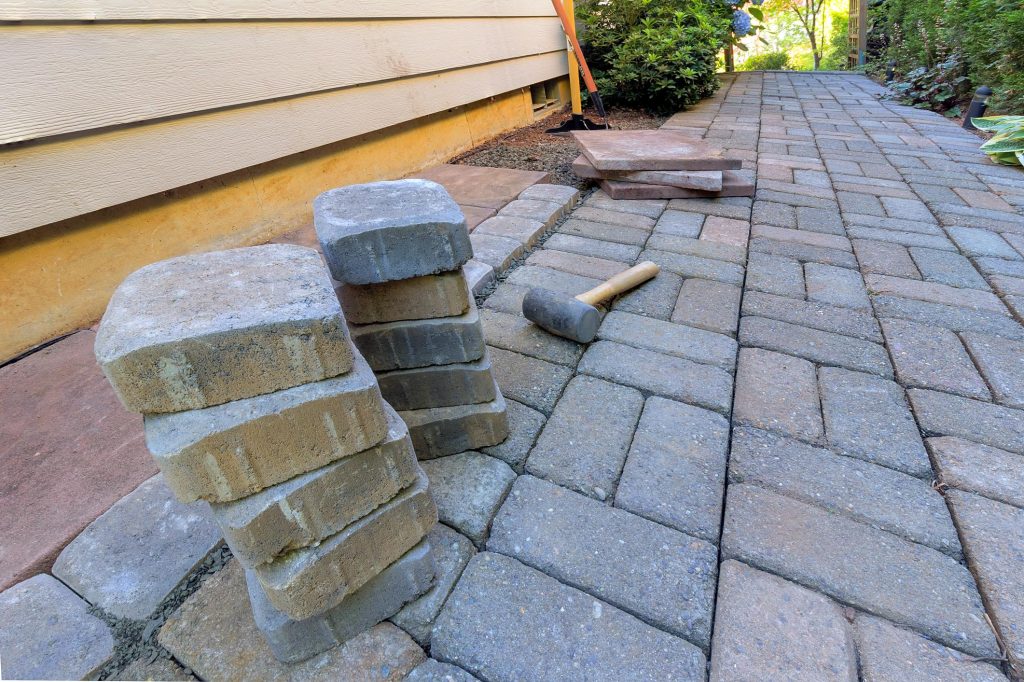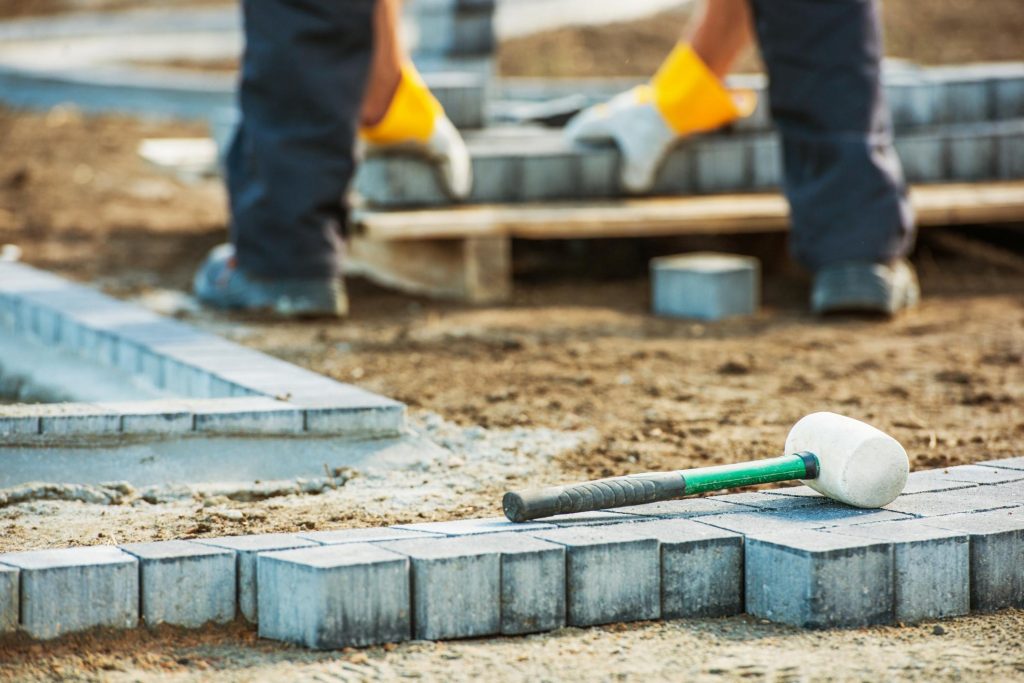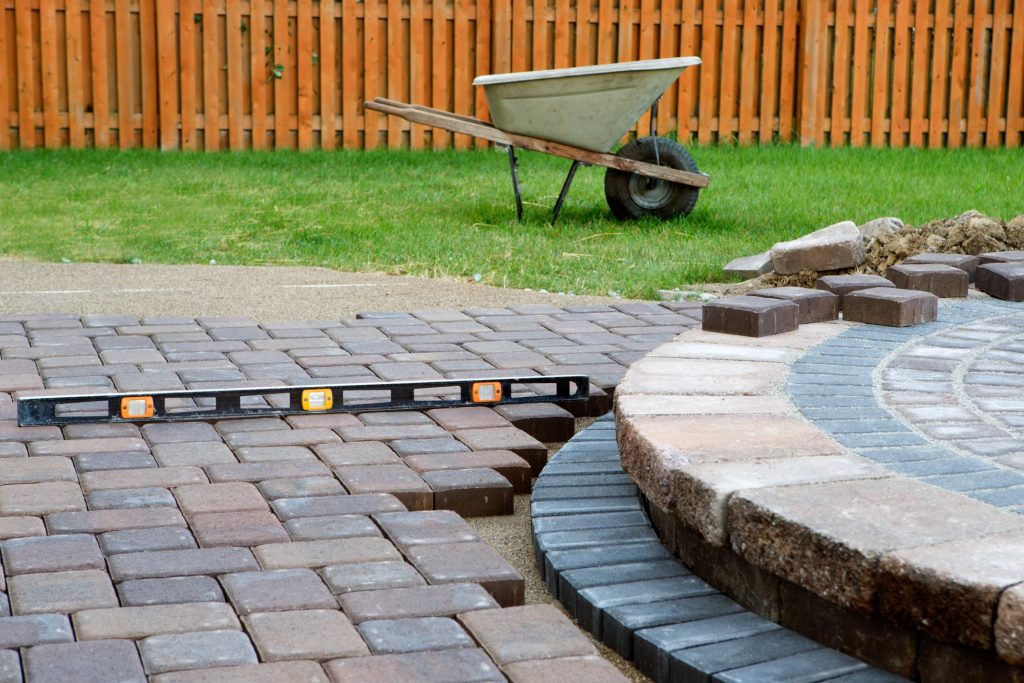Pavers

Pavers are incredibly popular as surfacing materials for various outdoor hardscaping features. These interlocking stones are made from a wide range of artificial materials including concrete, clay, and rubber. There are also natural stone pavers all of which are known to be quite durable and versatile in their application.
Why Choose Pavers?
There are several reasons for considering pavers for your outdoor installations. They are quite versatile and can be used for a wide range of outdoor installations including pool decks, patios, driveways, and other outdoor areas. They can be made of different materials and come in various patterns, shapes, and colors. Pavers are also quite durable and will last for several years with minimal maintenance. They are also quite easy to maintain and repair. When damaged, pavers can be singly removed and replaced with new ones which help to limit the cost of repairs. Pavers are always ready for immediate installation. Unlike poured concrete or asphalt, the process of installing pavers is more straightforward since the materials arrive on sight ready for immediate installation with no extra process required.
Types of Paving
When it comes to using pavers for your outdoor installations, there are various options available. Your choice of pavers will depend on your preferences, specific needs, and budget. Pavers can either be natural or manufactured. Concrete and brick are two of the common examples of manufactured pavers. Concrete is well known for its durability and versatility. Brick pavers have a classic look and are known to be extremely strong and durable. A lesser-known example of artificial pavers is rubber pavers. This is made from recycled rubber tires and has a unique feel and appearance. Examples of artificial pavers include cobblestone, flagstone, bluestone, travertine, and so on. Natural pavers have a unique appearance. But they tend to be more expensive than artificial materials.
What Are Pavers Used For?
Pavers are important hardscaping materials with various possible applications. They are quite versatile and can be applied in several types of hardscaping installations. Pavers can be used as flooring for patios, driveways, walkways, and sidewalks. Stone and concrete pavers can also be used for the construction of pool decks, outdoor kitchen areas, and edging materials for your softscaping fixtures. There is an endless selection of patterns, colors, texture, styles, and sizes of paves to choose from which makes them suitable for pretty much any type of home exterior. No matter your existing outdoor design, there is a paver for you.
How Much Do Pavers Cost?
Because every hardscaping project is unique, it is difficult to give hard and fast figures on the exact cost of paving installations. The cost of pavers you will use to complete your project depends largely on the type of project. For instance, the cost of a patio installation will definitely be different from the cost of installing paving stones for your driveway. The type of paving material is also a major factor to consider. Artificial pavers like brick and concrete tend to be cheaper than natural stone pavers. Get in touch with our hardscaping experts to work out your paving installation cost based on the details of your project.
SEND US A MESSAGE
Yes - we check our messages & will reply 🙂



Call Us For A Free Hardscape Estimate